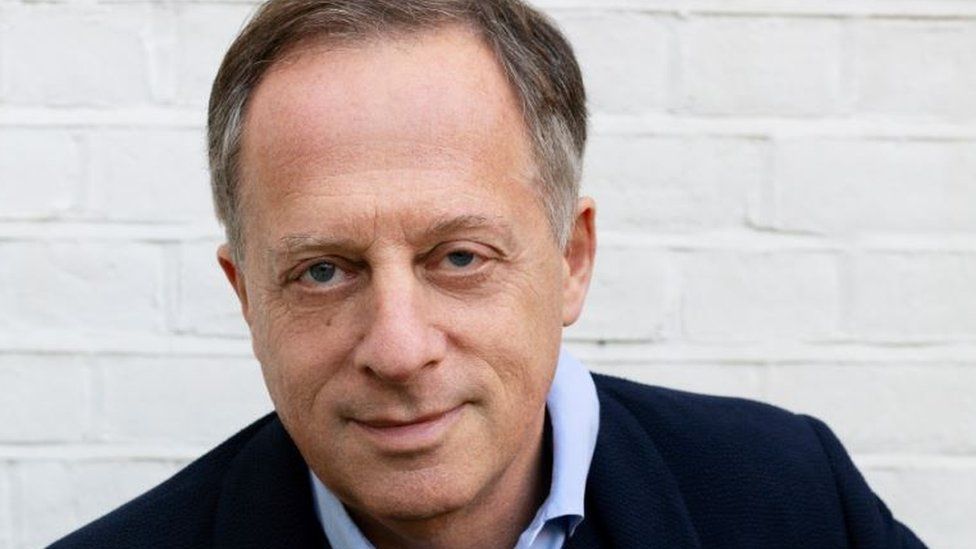ARTICLE AD BOX

Richard Sharp became chairman of the BBC in February 2021
Richard Sharp has resigned as chairman of the BBC following the publication of a review into his appointment.
The 25-page report looks at whether he failed to properly disclose his involvement in the facilitation of an £800,000 loan to Boris Johnson.
At a glance, here is what it tells us:
Failed to disclose perceived conflicts of interests
The main finding in the report is Mr Sharp "failed to disclose potential perceived conflicts of interest".
In the BBC chairman job specification, candidates were told if there were any issues which could "be misconstrued, cause embarrassment, or cause public confidence in the appointment to be jeopardised", they should be raised.
The reports takes issue with Mr Sharp over not disclosing two issues.
The first was a perception "he influenced the former prime minister to recommend him [for the BBC role] by informing him of his application before he submitted it".
The second related to a perception Mr Sharp "was recommended for appointment because he assisted the former prime minister in a private financial matter", which would have involved setting up a meeting between Cabinet Secretary Simon Case and a guarantor for the loan, millionaire Sam Blyth. In the event, the meeting did not take place, the report found.
"There may well have been a risk of a perception that Mr Sharp would not be independent from the former prime minister, if appointed," it says.
The report notes that Mr Sharp does not accept the first conclusion, but he has apologised for the second.
The timeline
The report lays out when these things happened, and why that could be an issue.
It was before his application in November 2020 for the role of BBC chairman that Mr Sharp told Boris Johnson he wished to apply for the role.
Prior to being interviewed, Mr Sharp also told the former prime minister he would meet the most senior civil servant, Cabinet Secretary Simon Case - who advises the prime minister - over the matter of making an introduction to "a person who had made a suggestion that he might assist the former prime minister with his personal finances".
This meeting with Mr Case took place on 4 December, 2020. At this meeting Mr Sharp told Mr Case of his BBC application and agreed to have no further involvement in any loan discussions, believing this resolved any conflict of interest issues.
Following an application process laid out in the report, the appointment of Mr Sharp was announced on 17 February, 2021.
He could still have got the job
Despite potential conflicts of interest not being raised in Mr Sharp's application, he may still have got the job if they had been flagged.
"A potential conflict of interest should not preclude a candidate from being shortlisted or appointed," the report says, as long as they are declared.
In this instance, it would have been the permanent secretary in the Department of Culture, Media and Sport who would have handled the issue, and advised ministers ahead of the appointment.
What it says about Boris Johnson
One of the other key players in this is former prime minister Boris Johnson.
The report states the inquiry "makes no findings about the conduct of ministers, in relation to this appointment process, including the former prime minister".
It does add "ministers are reminded of their duties to declare and resolve any interests and relationships which they have".
Leaking of preferred candidates
The report also takes aim at the practice of the leaking of names of "preferred candidates" for the BBC job, and says this practice by ministers should be prohibited.
On 22 October 2020, the Daily Telegraph had carried a story that Mr Sharp was "tipped as a frontrunner for the role of BBC chair", with a source saying he was likely to apply. Mr Sharp and Downing Street were quoted in the article as having no comment.
The report says that the practice "may well have discouraged people from applying for this role", and could "undermine efforts to increase diversity".
The panel responsible for the recruitment process noted its disappointment at a lack of diversity among the applicants.
It notes that a suggestion was made to civil servants to call potential candidates and inform them the application process was open.

 1 year ago
25
1 year ago
25








 English (US) ·
English (US) ·